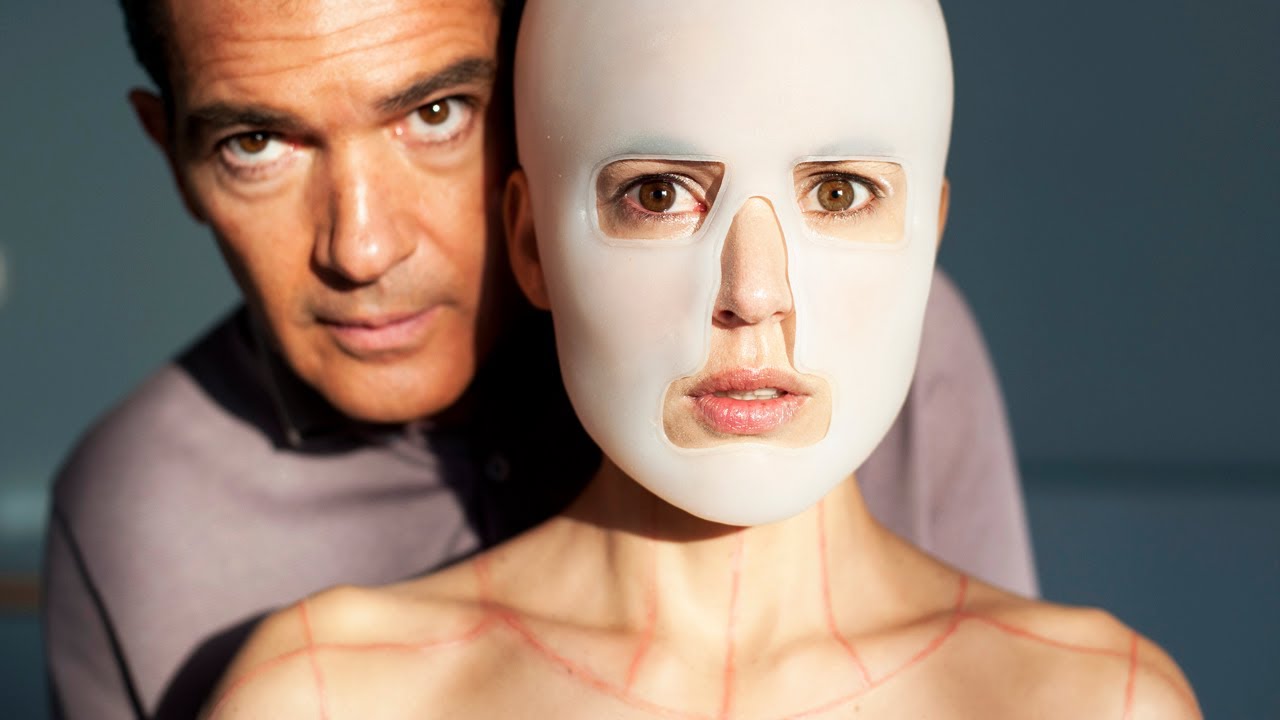
Over 16 million cosmetic procedures are performed every year in the United States. It is no longer a taboo. You could say plastic surgery today is as common as going to the hairdresser; well, a very expensive hairdresser.
In the majority of the picks on this list, you have to suspend your disbelief of what modern plastic surgery can do. In the early years of film, plastic surgery was portrayed as this mystical omnipotent intervention, which was doomed to bring demise. Most of these films tend to deal with identity issues, in one way or another.
10. Goodnight Mommy (Severin Fiala and Veronika Franz, 2014)
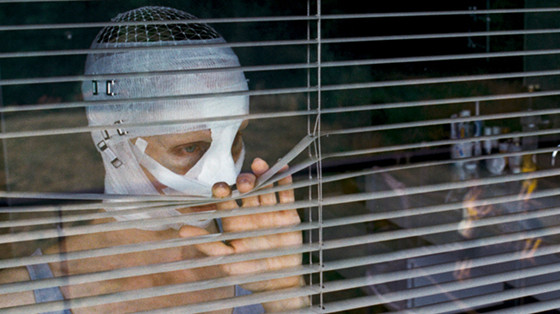
This 2014 Austrian Oscar submission is co-written and co-directed by Severin Fiala and Veronika Franz, who chose to shoot chronologically without showing the screenplay to the actors.
Twin brothers Lucas and Elias (Lucas and Elias Schwartz) are eagerly awaiting the return of their mother (Susanne Wuest), who just had plastic surgery. When she comes home, they start to notice a drastic change in her behavior, forcing them to suspect the woman under the bandages might not be their mother.
The cinematography is one of the strongest aspects of the film. Limited in location with only a house and its garden, Martin Gschlacht’s shot composition is a static eye galore. It constantly constructs a frame inside a frame with windows and blinds emphasizing the eerie tone, while highlighting a greenish Vermeer color palette.
The original German title “Ich seh ich seh”, meaning “ I see I see”, is more persuasive and its ambiguity fades after the plot twist is revealed, though it had to be simplified for commercial reasons.
The twist is really smart and fitting, only you start noticing the hints given during the first and the second act to be a bit forced. Nonetheless, “Goodnight Mommy” is one of the better psychological thrillers of the last few years.
9. Rabid (David Cronenberg, 1977)
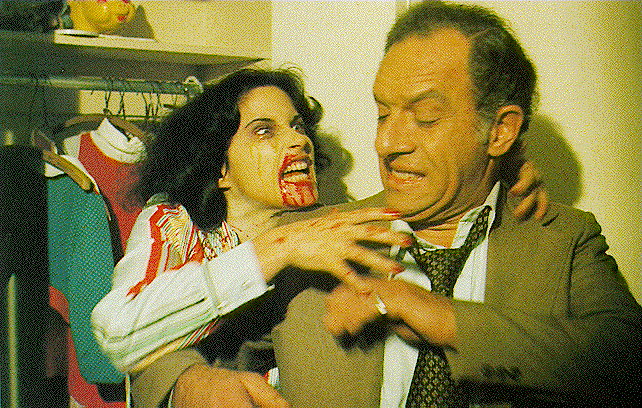
After a crowd of shorts, TV movies, features and “Shivers”, David Cronenberg started to establish his name in art circles with this 1977 body horror.
Rose (Marilyn Chambers) is involved in a motorcycle accident with her boyfriend Hart (Frank Moore), which leaves her in critical condition. Luckily, there is a hospital nearby. The doctors save Rose’s life and give her an experimental plastic surgery skin transplant. After waking up from her coma, Rose features sinister and bizarre behavior.
A now-deceased porn star turned actress, Marilyn Chambers delivered a convincing performance in a torn role of multiple layers. Cronenberg, as a director with Freudian instincts, shines at uncovering the hidden and repressed. The character of Rose is an early spark of that statement.
The phallic spear organ that manifests from the “anus” on Rose’s armpit and turns people into zombies by piercing them, underscores the sexual tone in a more subliminal way than it sounds.
With a remake on the way, media attention will encourage younger generations to discover this Canadian sapphire.
8. Face/Off (John Woo, 1997)
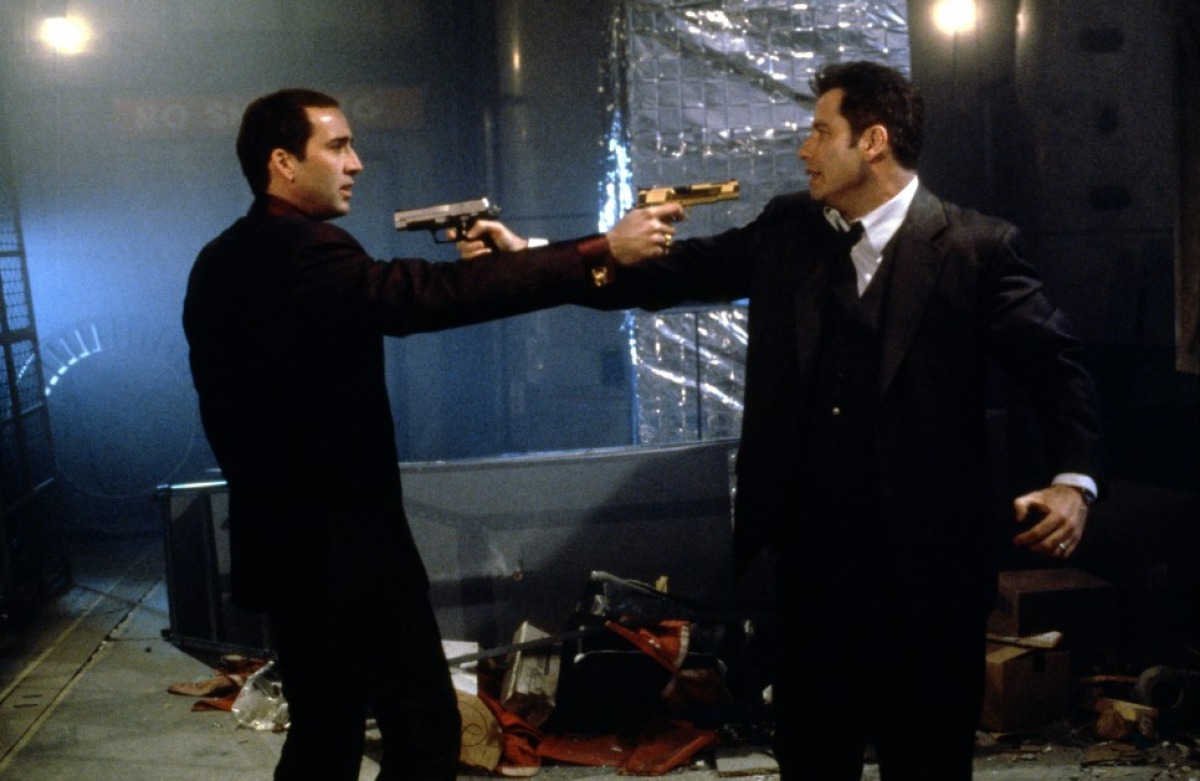
When veteran action director John Woo was signed on to direct “Face/Off”, he immediately changed the idea of the studio to start Sylvester Stallone and Arnold Schwarzenegger in favor of John Travolta and Nicolas Cage.
Sean Archer (John Travolta) is an FBI agent obsessed with capturing criminal genius Castor Troy (Nicolas Cage), who is responsible for the murder of his son. After Archer accomplishes his goal, the danger of a potential bomb pursues him to transplant the face of now comatose Castor Troy, so he can learn the location of the threat from the criminal’s brother.
Meanwhile, Troy wakes up from his coma and forces the doctors to transplant Archer’s face on him.
This film is total “Fun/On”. Bringing two of Hollywood’s craziest actors playing each other is a masterstroke from “The Asian Scorsese” John Woo. Travolta’s and Cage’s over the top acting fits perfectly the tone of the film, as well as the over the top directing. With action films nowadays focusing on very high pacing, and shaky cam reliance on delivering tension, “Face/Off” shines with character.
It is definitely one of the better Hollywood action films and it’s breathtakingly entertaining.
7. Dark Passage (Delmer Daves, 1947)
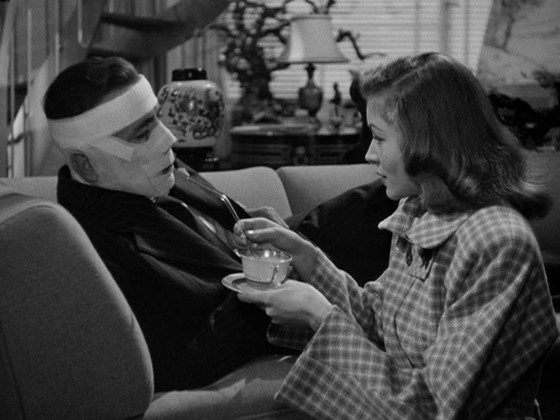
The third collaboration of screen legends Humphrey Bogart and Lauren Bacall after “The Big Sleep” and “To Have And To Have Not”, this film-noir is directed by the darling of the French film critics of the 50s, Delmer Daves.
After being convicted for the murder of his wife, Vincent Parry (Humphrey Bogart) escapes prison claiming that he is innocent. Convinced of his innocence, Irene Jansen (Lauren Bacall) shelters and nurses him after he had plastic surgery to completely alter his face.
Almost the entire first 40 minutes of this San Francisco thriller are shot from Bogart’s point of view. Daves uses clever long tracking shots with the co-actors staring and talking directly into the camera, creating an ominous atmosphere. Nowadays, audiences would associate this kind of filmmaking to a monochromatic first person shooter video game.
For the sake of correctness, the choice to shoot in this style might not have been entirely autonomous, since the main cause is to prevent using makeup on Bogart or cast another person to play him for the parts he is supposed to have a different face.
There are some plot conveniences on which time only took a toll, yet the chemistry between Bogart and Bacall floats on the surface, making deeper flaws unrecognizable.
6. Shi Gan (Kim Ki-Duk, 2006)
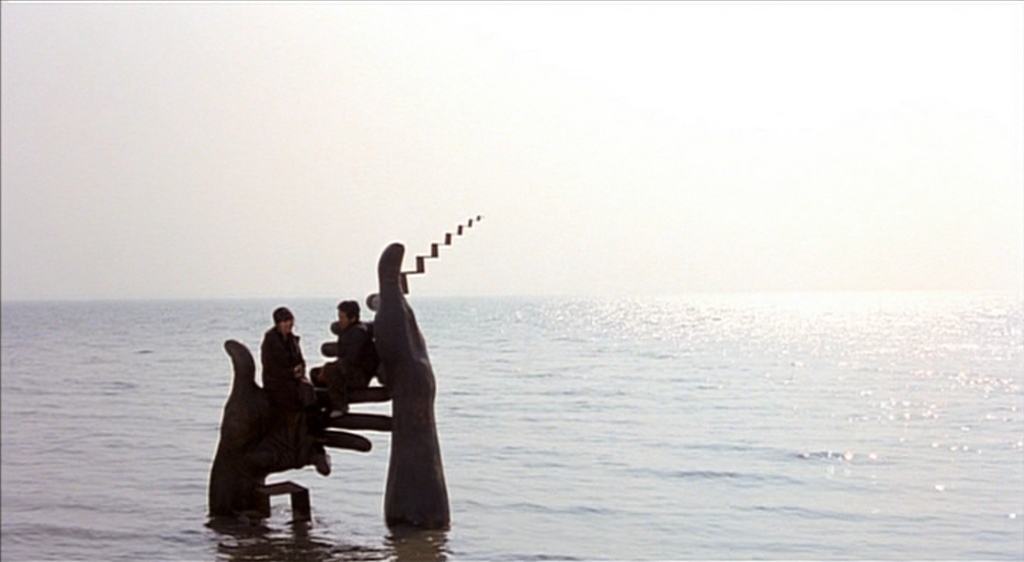
With Bong Joon-Ho, Park Chan-Wook, Sang-Soo Hong, Kim Ki-Duk and many more, South Korea has one of the most saturated art house contributions of our time.
Seh-hee (Yi-Jeon Park) is extremely jealous of every contact her boyfriend Ji-Woo (Jung-Woo Ha) has with other women. After a night of eccentric lovemaking, in which she states to him that he got tired of her face, she disappears. Ji-Woo fails to find her.
Soon after, a beautiful girl called See-Hee (Hyeon-a Seong) enters into Ji-Woo’s life, and he falls in love with her. The new couple visits the same places and takes the same photographs Ji-Woo did with his last relationship.
Hated by Korean critics and many Korean moviegoers, in “Shi Gan” (Time), Kim Ki-Duk, as in almost in all of his films, deals with the darkest obsession of a human being in the state of love. Seh-hee is driven by her innermost burning passion, suspending all her rationalism and dropping social convention.
With the washed out color palette and minimalist technical effort, Kim Ki-Duk ingenuously contrasts the aesthetic fixation of beauty that centers the plot.